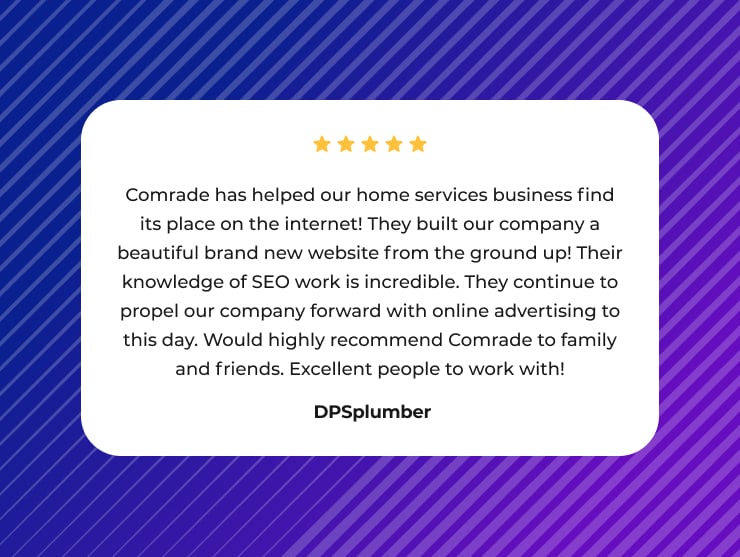
Due to the increasing reliance on the Internet to address daily challenges, discover businesses, access information, and make purchases, SEO has quickly established itself as a potent marketing effort that can’t be overlooked. Irrespective of your business type, SEO plays a pivotal role in driving fresh customers to your brand. Elevating your long-term SEO strategy is integral to maintaining a competitive edge, remaining relevant, and ensuring visibility for your customers.
Search engine optimization (SEO) is a crucial process for enhancing your website’s visibility. While the answer to the question of “How long does SEO take to rank?” can vary, a well-crafted SEO campaign with an adaptive SEO service package, developed by experts, can effectively connect you with potential customers who could become valuable clients.
Incorporating a long-term SEO strategy into your online business endeavors is crucial, as is understanding how long SEO takes to show results. Results don’t come overnight, but when they do- trust us when we say it’s worth it!
SEO stands apart from other marketing options due to its direct engagement with individuals actively seeking to make a purchase. Unlike encountering advertisements on social media or billboards during commutes, SEO organically targets those actively searching for businesses or products. This attribute renders it highly effective, marking it as one of the top marketing strategies for any business.
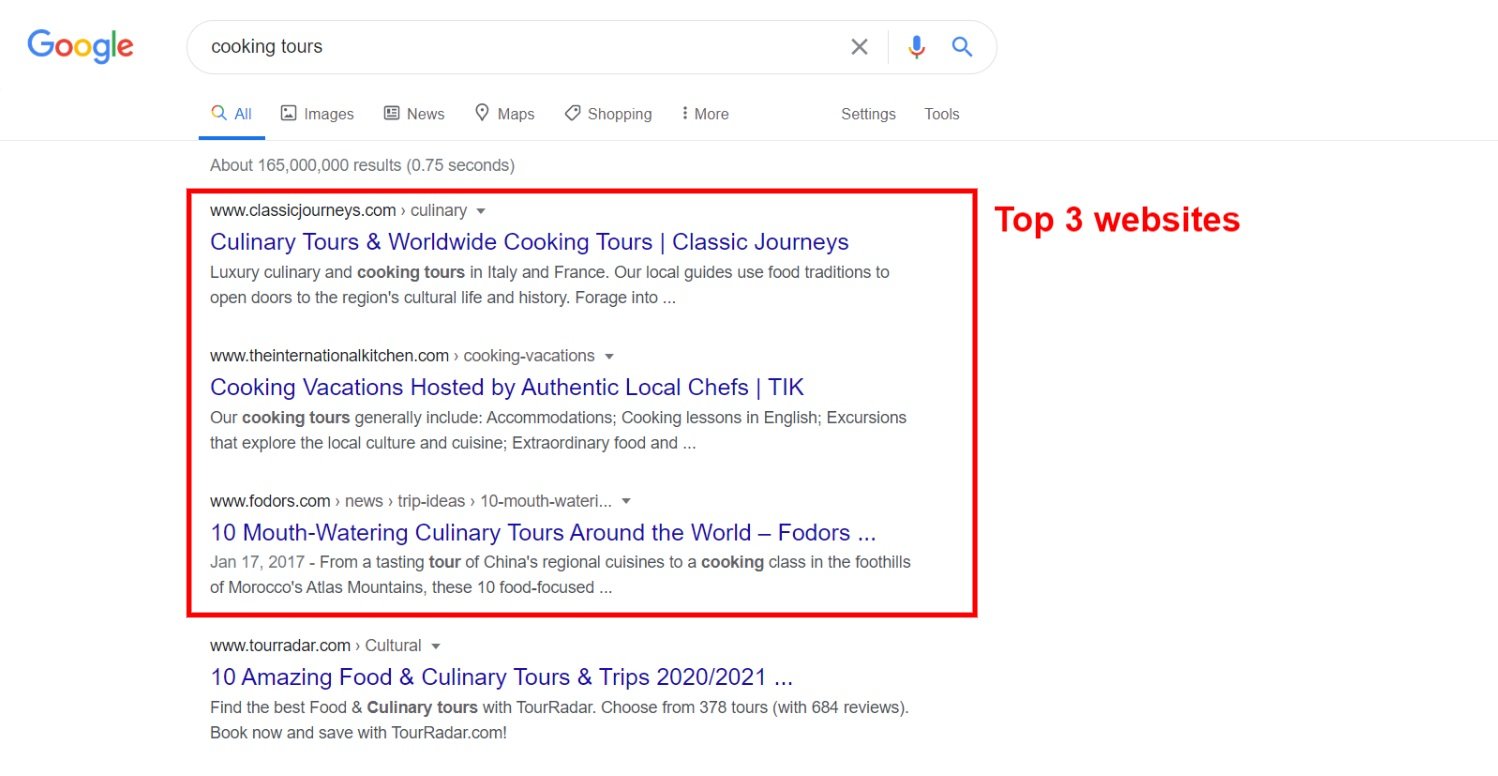
People always want immediate results and are constantly asking our team at Comrade: “how long does it take for seo to start working?” or “how SEO-friendly is my website?” It’s important to note that optimizing your website isn’t a one-time thing, nor is it instant. SEO takes time to start working and requires constant oversight of your strategy and its implementation to make sure your website stays on top. That’s because Google algorithms and requirements are always changing, and as bad-faith actors attempt to rig the system against legitimate businesses, Google and other search engines will adapt their algorithms to favor legitimate companies.
This is what makes long-term strategy important, and why it’s in the interests of any business to take time to understand SEO, or to hire a team of digital marketing and SEO professionals who can do it for them.
SEO is unquestionably essential for your online success, but it’s important to recognize that it’s not an instantaneous process. Properly executed, SEO ensures your business’s visibility to your target audience actively searching for your products or services. Let’s delve into the core principles of how SEO works in digital marketing and the factors influencing the time it takes new websites to see SEO results.
Elevate your brand’s visibility, connect with potential customers, and dominate search rankings. Revolutionize your online success with Comrade Digital Marketing Agency! Schedule a free consultation.
Why Does SEO Take Time to Start Working?
An SEO campaign requires time to yield visible outcomes for a few reasons, but mostly due to the substantial competition within most industries. Whether you’re a company specializing in shoes, bikes, or law, the Internet is brimming with companies employing their own distinct SEO strategies, making the process of ranking at the top of search listings for specific keywords a time-consuming endeavor.
In this dynamic digital ecosystem, where businesses meticulously craft their strategies to enhance their online visibility, the question of how long it takes for SEO to work remains contingent on a multitude of factors.
Beyond competition, the frequency of Google SEO updates should also be taken into account. Given the perpetual changes in algorithms, websites need time to solidify their presence. Your strategy must also include adaptive SEO solutions—a long-term endeavor. While investing in short-term boosts might yield immediate SEO results, it’s crucial to maintain vigilance over your approach, continually updating and refining it to align with the ever-changing algorithms.
We’ll take a deep dive into strategy, competition, and Google updates throughout this piece.
Key Variables That Determine How Long Your SEO Will Take
Let’s start with three key variables that will determine how long your SEO efforts take to work.
Good Strategy
There are numerous factors to consider in the realm of SEO, and the choices you make will determine the timeframe of results. As we’ve established, the extent to which you succeed in securing a prominent position within SERP rankings depends on your capacity to continuously adapt, stay atop your content, and embrace adaptive SEO solutions.
A comprehensive strategy encompasses variables such as competition, keywords, content, algorithms, and much more, all of which will get you good results faster.
Even if you continuously adapt and make changes quickly, results still won’t be immediate. Marketing and SEO specialists stress this point to every business they work with. Don’t assume that finetuning your website for SEO will instantaneously fix your problems. The timeline for your SEO ranking to reflect changes might be long, but it will happen.
Competition
As mentioned, the speed at which you witness results from your SEO efforts depends on your competition and the current SEO landscape. While adhering to a solid strategy and putting in the effort is important- progress aligns with the broader trends, and instant prominence on the first page is unrealistic, especially in fiercely contested spaces. In highly competitive niches, achieving dominance on a search page may entail a multi-year journey.
Keywords and Content
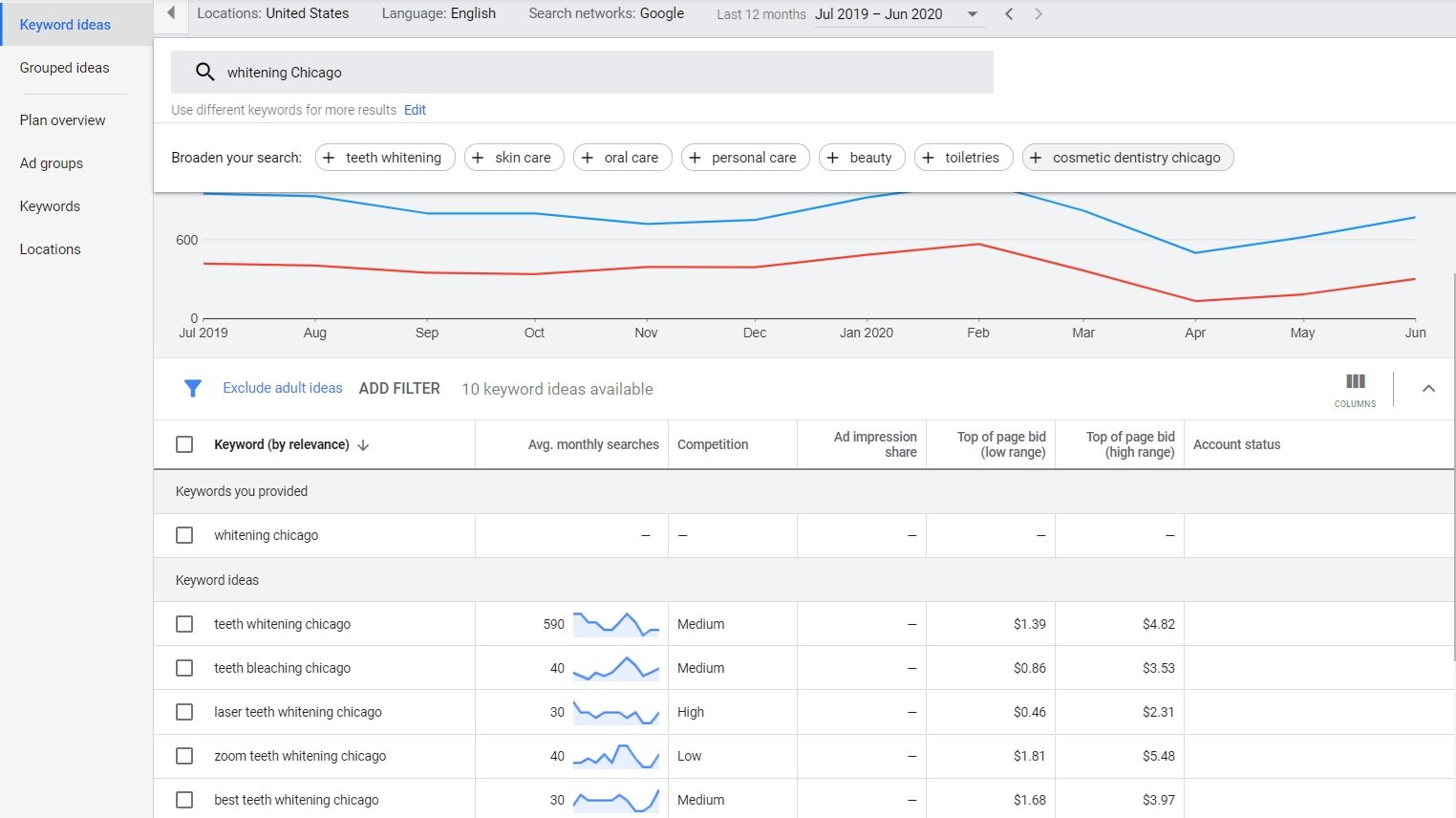
Keywords fall into distinct categories of strategy and competition. These critical words are the very ones that individuals are using in their searches to find your business (or your competition). By integrating these keywords into your content, you provide search engines with specific criteria to seek out, ultimately helping your ranking.
The way you use these keywords determines your SEO success. The old mantra that using more keywords makes your website more search engine friendly is just not true anymore. After the practice of “keyword stuffing” became popular, where websites would load pages with keywords in order to attract people to their site, Google and other engines refined the algorithm to be more sophisticated.
Your ability to use keywords in a smart and honest way will determine the speed and success of your SEO efforts.
How Long Does SEO Take To Start Working?
SEO is a dynamic process that involves various components, each with its own time requirements. These timeframes can vary based on factors such as the complexity of the project, competition in the industry, and the scope of work. This table offers a general guideline to help businesses and professionals understand the time commitment involved in a comprehensive SEO strategy.
| Stage of SEO | Description | Timeframe |
| Initial Research | Involves market analysis, keyword research, and competition analysis to lay the groundwork. | 2-4 weeks |
| SEO Strategy Development | Developing a comprehensive SEO strategy tailored to your goals, target audience, and industry. | 4-6 weeks |
| On-Page Optimization | Optimizing website elements like meta tags, content, and URLs to improve on-site SEO. | 2-3 months |
| Off-Page Optimization | Ongoing activities like link building and building an online presence through social media. | 3-6 months |
| Content Creation | Consistently creating high-quality, relevant content for your audience to enhance authority and engagement. | 3-6 months |
| Technical SEO | Resolving technical issues like site speed, mobile-friendliness, and crawlability for better performance. | 2-3 months |
| Monitoring and Analytics | Continuous tracking of performance metrics and making data-driven adjustments as needed. | Ongoing (Throughout) |
| Indexing and Ranking | Achieving higher search engine rankings, which can take several months due to competition and algorithm updates. | 4-6 months (or longer) |
| Total Time | Sum of all stages’ timeframes for a complete SEO campaign. | Approx. 9-18 months |
In the dynamic landscape of SEO, understanding the timeframes associated with each stage is crucial for effective planning and execution. While the provided timeframes offer a general guideline, it’s essential to recognize that SEO is an ongoing effort, with continuous monitoring necessary throughout the campaign. Achieving optimal results often requires dedication, persistence, and adaptability to industry changes.
Does SEO Still Work and Is It Still Important in 2024?
With traditional marketing methods fading, SEO is rising to the top, and it’s crucial to understand why it’s so important for your online success in 2024. Whether you embraced SEO early or are just dipping your toe in the water, it remains a powerful catalyst for driving organic traffic and generating leads to your website.
If you’ve been questioning the effectiveness of SEO, we can confidently tell you that SEO does work, and is an absolute must. With the right SEO maneuvers, search engines like Google elevate your website’s ranking, leading to increased traffic and, subsequently, enhanced conversions. It’s crucial to note that SEO only works when executed correctly.
Is SEO Worth the Money?
In short, yes. It’s important to be strategic and consider your business’s individual needs. Take into account how long it takes to learn how SEO works for your industry (experts won’t have such a steep learning curve), the level of customization you need, the competition in your industry, and the time it will take for your SEO plan to take effect. Do you have the time or expertise to tackle such a huge endeavor?
If you operate a small, independent business with 1-5 employees, it may make more sense to conduct your SEO campaign independently, as the costs can add up. But, if you run a slightly larger small business, or a mid-sized to large business, SEO holds substantial value and is definitely a worthy investment, particularly when collaborating with an expert SEO agency that really knows what it’s doing.
Read more about SEO website costs.
Delivering Business Results: Our Digital Marketing Case Studies
The Role of SEO Strategy
Your SEO strategy is everything. You can include new keywords on your page, but if you’re not doing everything else, your competition will trounce you on something like technical optimization.
SEO campaigns exist precisely because there are so many variables and elements to this kind of digital marketing, including on and off-page and on-page SEO.
On-page SEO pertains to elements within your control on your site, such as keywords, content, images, and load speed. Off-page SEO encompasses factors sometimes beyond your immediate control, such as backlinks from relevant websites, reviews, media outlet promotions, and social media posts about your site by prominent figures.
Creating a robust SEO plan is crucial, and it should encompass both on-page and off-page strategies. Every business can enhance its SEO efforts by either seeking expertise from a digital marketing agency offering SEO services or learning about SEO themselves.
Optimizing Your Content
Your content, including title tags, meta titles, and meta descriptions, forms a crucial part of the SEO process. Metadata is what searchers encounter on a search engine page and gives them a glimpse of what they can expect to see on your site.
Crafting compelling headlines and using a relevant keyword in your metadata is essential not just for captivating searchers, but also for providing search engines with an anchor term.
This strategy ensures that SEO works effectively, enabling search engines to properly point people in your direction. Without utilizing the right keywords, even the most novel SEO strategy might not yield the desired results.

Optimize meta tags for improved search visibility, higher rankings, and increased organic traffic to your website
Google actively discourages the use of dense blocks of text filled with generic keywords. This change prompts you to craft content that genuinely appeals to your visitors, encouraging them to engage with what you’ve created. Moreover, this shift also invites you to consider integrating relevant keywords in ways that align more organically with the context, a practice that any skilled SEO strategist would advocate for.
Consider the length of your content, but also consider the depth of detail you cover. It’s essential to assess whether the content can be organized into multiple pages to enhance readability and SEO efforts.
Regardless of how many keywords you populate a page with, if they’re irrelevant, Google will take note. Whether conveyed through image data, videos, reviews, or social media posts, search engines possess the ability to identify attempts at manipulating the system.
Strategically assessing your Google keywords is paramount. Identifying keywords that closely align with your product, exhibit frequent search activity, and offer favorable competitiveness is crucial. Try the Google Keywords service to conduct thorough keyword research, assess search volume, and evaluate competition levels. Opt for keywords that directly pertain to your product, ensuring your website’s relevance to searchers, and strike a balance between highly competitive and less competitive terms.
Read more about how keywords work.
Technical SEO
Let’s tackle technical SEO next! This refers to the technical edits you can make to your website that improve the experience for visitors and influence your rankings in search engine algorithms. Instead of relying solely on keywords, search engines will favor websites that offer a positive user experience.
Firstly, factor in the speed of your website. How long SEO takes to start working is directly impacted by your website’s loading time. If your site experiences delays in loading, users are more prone to hit the “Back” button and explore alternate websites from their search results, potentially hampering the efficiency of your SEO strategy. Furthermore, protracted loading times can impede search engine crawlers from efficiently navigating your content, hindering their ability to locate vital and pertinent information relevant to the search query.

To ensure optimal website performance, it’s crucial to optimize your images to prevent unnecessary largeness and distribute data across pages. The potential issues arising from overloading one page with excessive content and data include the deterioration of the user experience and poor ranking by search engines like Google. If you’re asking yourself “How long does SEO take to work?”, know that the better your technical SEO, the faster you’ll see results.
Another important thing to consider for SEO success is your website’s ability to adapt to different screen sizes. More people than ever are accessing websites primarily on their phones or tablets, meaning it’s important your website isn’t only optimized for desktop machines. The solution to this is creating a mobile-specific version of your website that loads when someone accesses the site on a mobile device. Perhaps a better option for your SEO success, however, is a responsive website that looks the same but moves buttons and navigation menus around depending on the screen size.
Google prefers websites that are adaptive and responsive.
Take the time to amend these things and keep your website speedy, and you’ll reap the benefits in your search engine rankings.
Analytics
Analytics should inform all of your SEO strategies. This vital tool allows you to meticulously scrutinize data to ensure that your SEO endeavors are guided by informed decisions.
Through Google Analytics, you can track the number of visitors reaching your site, discern the keywords driving organic traffic, and assess referrals from various websites. This software provides invaluable insights into the effectiveness of your employed SEO measures, offering regular reports that compile essential data and key takeaways, shedding light on the question of “how long does it take for SEO to kick in?”
These include:
Behavior Reports
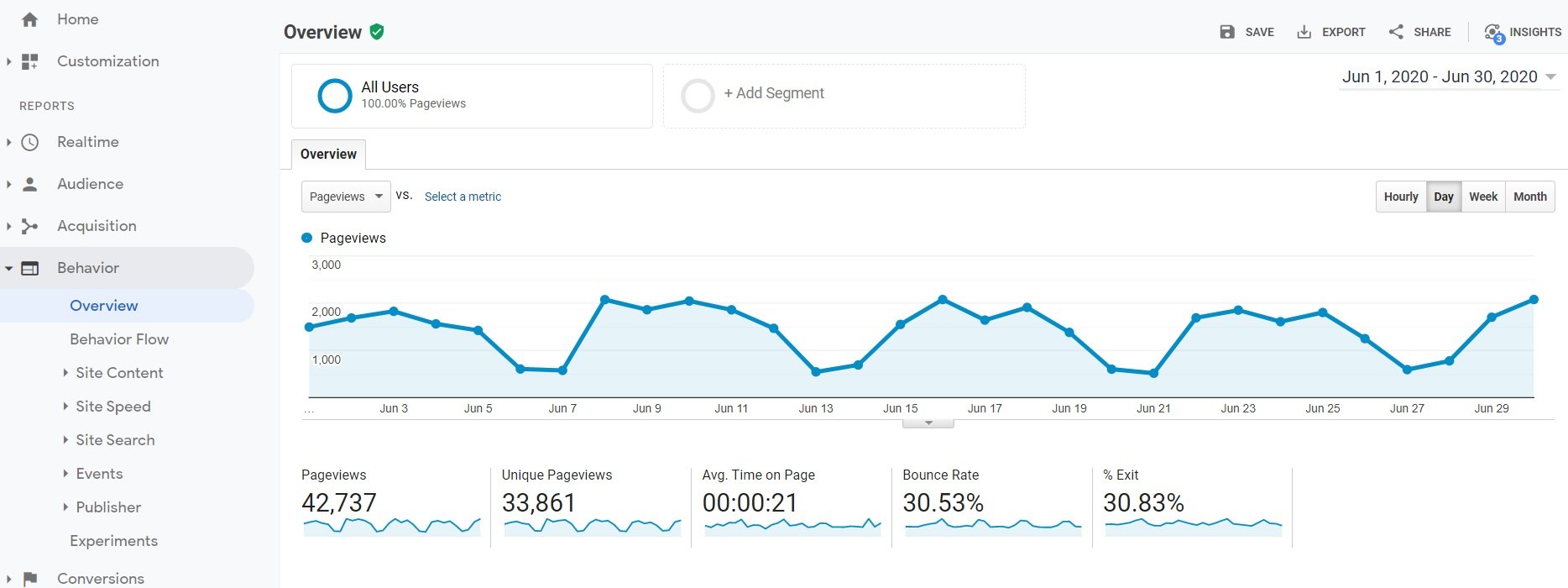
Behavior reports offer crucial insights into how users interact with your website and their engagement patterns, such as the usage of your site’s search function and the navigation path they follow. These reports also reveal the frequency of visits to individual pages and identify the initial landing page for many users. This information is invaluable, aiding in resource allocation optimization, and guiding your focus toward the pages that demand the most attention to maintain sustained reader engagement.
Acquisition Reports
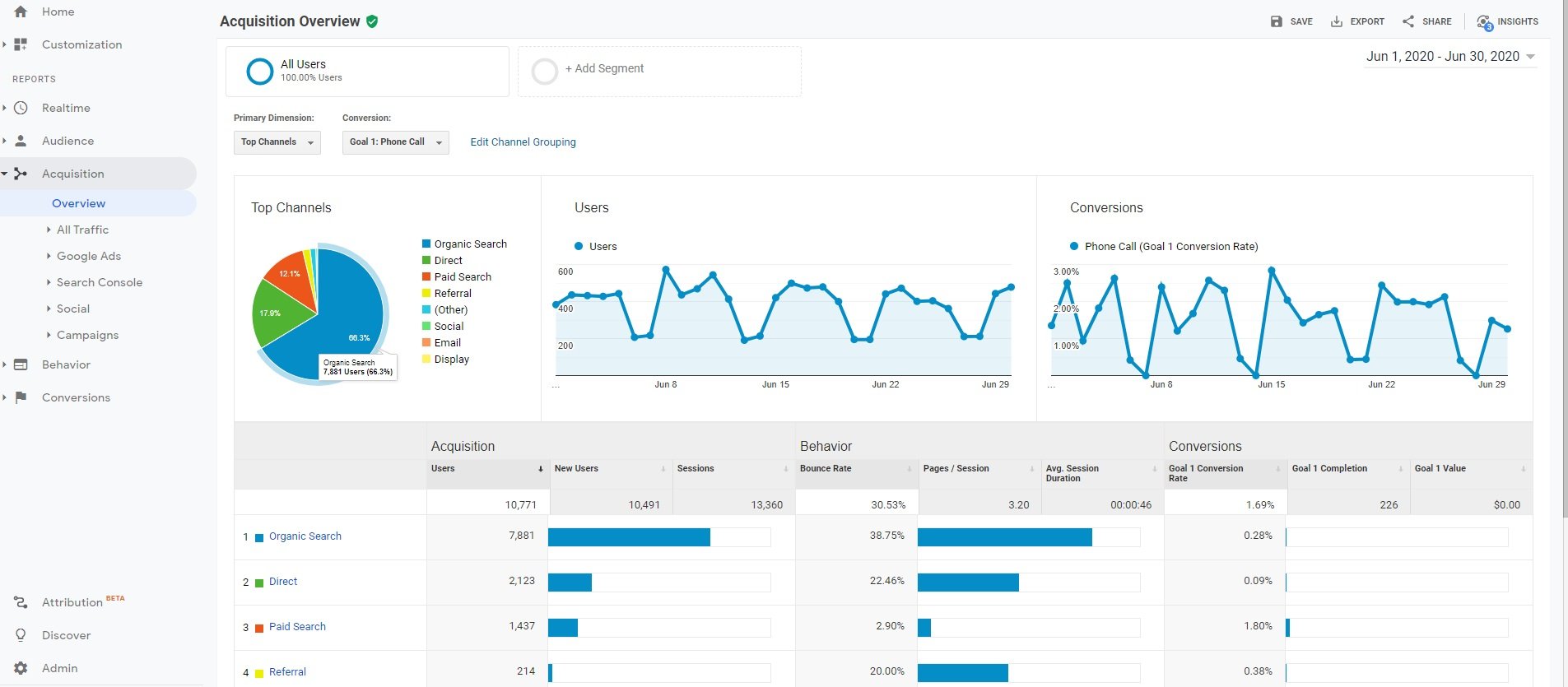
Acquisition reports offer insights into pre-click data, including impressions, queries, and bounce rates. This evaluation delves into the impact of social media on website engagement, providing valuable campaign-related data. This analysis facilitates the refinement of campaigns aimed at boosting overall engagement.
Audience Reports
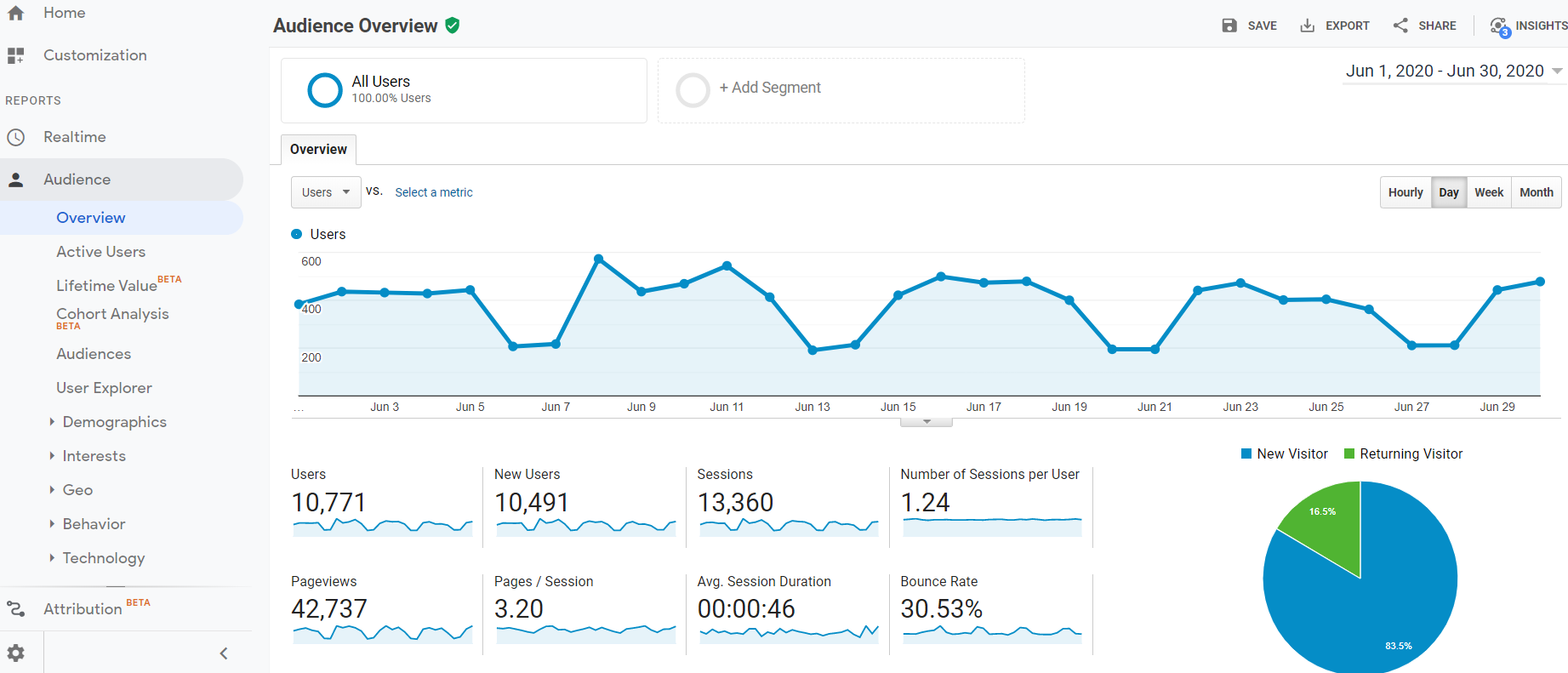
An audience report gives you an insight into how many active users are on your website at any time, allowing you to filter through given periods. You’ll see the lifetime value of each user based on their activity on single or multiple sessions, and get to know more about user behavior.
A digital marketing agency providing high-performing SEO audit services will help you finetune your SEO campaigns.
The Role of Competition in Search Engine Optimization
Having delved into the nuances of SEO and the functionality of technical SEO, it’s prudent to revisit the competitive landscape. As previously mentioned, the fundamental premise remains: heightened competition means there’s a larger pool of contenders utilizing the same SEO strategy, impacting your ascent to the top of SERPs (search engine results pages).
Your competition is shaped by more than just the companies offering similar products or services; it’s influenced by the SEO work you undertake and the keywords you employ. Even if your offerings closely resemble those of another company, you might not be competing.
If you provide computer repair services in Jacksonville, Florida, you won’t be competing with other companies using keywords like “computer repair services.” Instead, you will be competing with geo-specific keywords. In this example, you would compete with keywords like “computer repairs in Jacksonville” or “computer repair services in Florida.”
The number of companies competing for these specific keywords will determine how long your SEO takes, or how much finetuning it will take to get things right. The best way you can speed up that improvement in your search engine rankings is to use a variety of SEO tools and strategies, as outlined above. Consider the keywords you use and think about where you use these keywords. In geo-specific businesses, think about using location keywords as a priority.
Competition forces you to get smart with your SEO!
The Role of Google Updates
As we’ve already briefly discussed, Google is always changing the algorithms it uses to determine how websites are ranked on its search results. These changes take place to ensure that websites looking to scam users or increase their traffic by tricking searchers are not given an unfair advantage over websites that are legitimately offering a service or products that users are actively searching for.
Google updates help the end-user in that they ensure searchers are presented with the most relevant information every time they search. They also mean that businesses, while still facing competition, face fair competition when they compete for the top space under specific keyword searches.
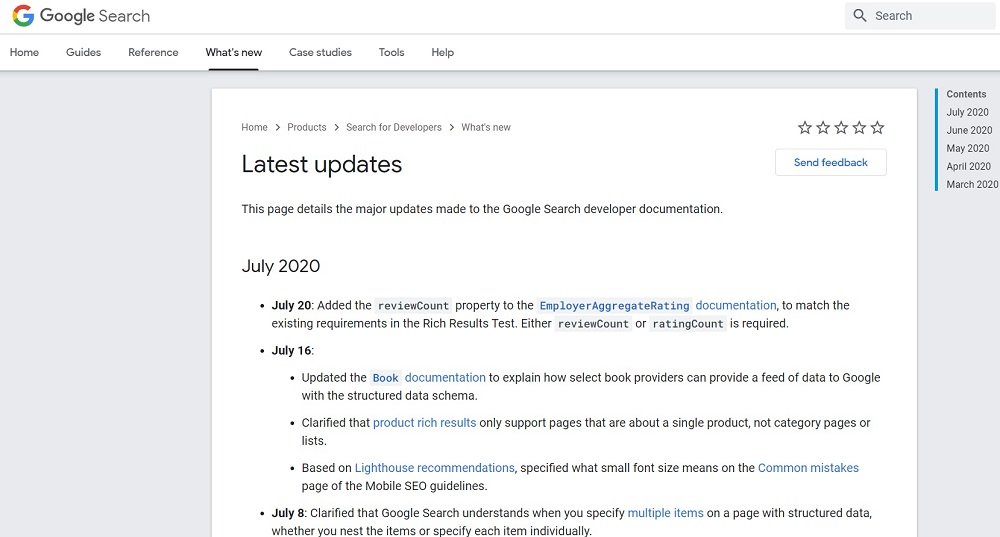
Stay ahead of the game as Google updates its algorithms to provide users with relevant and fair search results
Many big updates have occurred in recent years, which we’ll examine in a moment, but lots of little changes are also occurring all the time. How SEO is managed today is vastly different than it was ten years ago.
Big Updates That Changed SEO
One of the best-known updates to the Google algorithm is Panda. This was rolled out back in 2011, but the effects are still widely felt by businesses today. It assigned web pages a “quality score” that is used as one of the ranking factors. It checked websites to look for duplicated and thin content, as well as keyword stuffing. Before Panda was introduced, websites would often rig the system by packing pages full of content that was full of keywords.
It didn’t matter if the content was genuinely useful to the reader, it just meant that the keywords were present. Under Panda, websites to this day have to ensure that their page offers quality content and a positive experience for users. If they fall foul of this and stick to the old keyword stuffing techniques, it will actively count against them in the rankings.
In 2013, the Hummingbird update expanded on the keyword stuffing rules. It helped Google interpret search queries more accurately. Under this update, pages can be assigned to a search results page even if the keyword doesn’t specifically match. You can thank AI for this – the use of natural language processing means search engines are getting smarter. It means your website should focus on concepts and not just keywords.
In 2017, the Fred update warned websites against the use of ad-centered content. While ads and affiliates are allowed, the use of this kind of content is now more strictly controlled. You should watch out for using overly thin content on your website, and if you do show ads, you should make sure that they are relevant to your website.
Don’t try and trick Google…because these big updates appear all the time.
The Importance of Ongoing SEO
Even if you manage to trick the SEO ranking algorithm, it won’t last. The fact that Google is always rolling out these updates means that things can change very quickly.
Not only that, but the nature of the competition we’ve described throughout this piece means that your strategy may need tweaking just weeks after seeing some success in your rankings.
This is why your SEO campaign must be ongoing, based on analytics and good data, and designed to comply with Google’s algorithm updates. You can do this yourself by staying up to date on your analytics and the latest Google news, or you can place your trust in experts who handle this every day.
Is SEO a Dying Industry?
No. Every few years some folks in the digital marketing industry express their views that the SEO industry is dying. But with an estimated value of over $70 billion dollars, SEO isn’t going anywhere soon. As a result, outdated SEO tactics can now actively kill your rankings.
So How Long Does SEO Take To Work?
There’s no set time. It could take weeks, it could take months, but it will always take time. A good SEO campaign is ongoing, is always changing, and is based on data.
To learn more about what goes into forging a good SEO strategy, contact our team at Comrade.
We’re digital marketing and SEO experts with more than a decade of experience working with Google best practices and can build your web presence from the ground up, or resuscitate a flagging performance if your current SEO efforts are not yielding results.
We’ll develop a long-term strategy, provide SEO consulting services, and ensure your rankings move up as quickly as possible. For a custom plan, and a team of professionals invested in your long-term success, get in touch today. Even if you decide not to hire us, we’ll be glad to discuss your options and build a marketing plan for you, free of charge.
Frequently Asked Questions
How do I know if SEO is working?
Your SEO efforts show promising results when you observe a surge in backlinks within just a few weeks. Monitoring an upswing in your website's organic keywords assures you that your selection of target keywords aligns aptly with your industry, and that they are being skillfully integrated into your high-quality content. This approach harmonizes well with the evolving landscape of natural language search, indicating positive progress within your website traffic and Google Search Console analytics.
Is SEO a dying industry?
Every few years, a few voices from the marketing world's far reaches announce that SEO is doomed. With a market capitalization of over 70 billion dollars, rest assured that SEO isn't going anywhere anytime soon.
Is SEO worth the money?
Absolutely. Organic traffic continues to overtake all traffic outlets and shows no signs of faltering. When users are looking for your goods or services, they can use Google to check for relevant keywords (or ask their voice assistants). And using the right SEO strategies will improve your chances of being at the top of Google search results.




